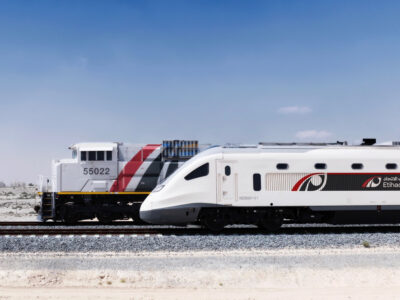I remember when I was accepted into McKinsey’s Qiyada emerging leaders program – a one-year immersive leadership journey for early-stage professionals. I thought to myself, prepare. Prepare for rigour, for reading, for analytics and for a framework driven approach to leadership. I expected to learn about leadership through the lessons and practical experiences from global McKinsey experts and leaders. I expected some sort of toolkit that I could essentially take back to my office, implement and voila, become a better leader.
Boy was I not prepared.
I grossly underestimated what this program was about, and perhaps more importantly I misunderstood the most critical aspects of what good leadership is all about. For starters, there was no framework, no toolkit, something I assumed came with all McKinsey trainings. There were stories – stories of inspiration and success and equally, there were stories of heartbreak and failure. There were exercises of deep reflection and introspection, and sessions that surfaced vulnerabilities and insecurities that many would only find comfortable sharing with a therapist or best friend.
It was not what I had all expected from this journey and in the beginning, I wasn’t sure if this is something I wanted to expose myself to. I didn’t know these people in my cohort, I didn’t know these trainers and experts, and perhaps the scariest revelation of them all, I didn’t know myself as well as I thought I had.
Here are a few of the lessons that stuck out most in my mind:
Safety and trust matter most
This program started with a short story-telling exercise with a group of complete strangers. What I quickly realised is that I felt more connected to this group of people than to some of my colleagues and friends with whom I’ve known for years. Why? Because seeing people put their own vulnerabilities on display, starting with the leaders and trainers themselves, made me feel safe to do the same. And once we established this level of safety, with it came a sense of empowerment to speak freely and openly without fear of judgment. The bond that was created in our small team in this short amount of time was remarkable.
It made me wonder if I demonstrated enough vulnerability in my own team environments? I think the answer is, probably not because I have either been too nervous for it to be interpreted as a weakness or incompetence. But it’s something that I know is not only holding myself back as a leader, and more importantly is likely impeding the growth and development of my own team. The next time you have a team meeting, try starting off with sharing a story about a time you failed and what you learned from it. You may be surprised at the impact this one exercise has on the relationships with your own colleagues.
Leadership development doesn’t just happen at work.
One of the things I appreciated most about this program was the emphasis they placed on health and wellness. You hear stories about McKinsey consultants or any consultant for that matter having a difficult work-life balance. We often tell ourselves that if we’re not in the office 24/7 or working 7 days a week then we can’t reach our professional aspirations. And here they were, McKinsey and Aberkyn leaders (a change leadership organisation co-founded by McKinsey), reinforcing that balance was in fact key.
This wasn’t about work-life balance in the traditional sense. The lesson was, understand your own energy and what it takes to keep your tank full. The reality is that, a lot of this fuel can come from simple things like exercise, time with friends and family, or just more sleep. For some it might actually be about working smarter not harder. The best leaders put in the hard work to understand their own energy and their triggers. This takes real, consistent work, and it’s not something that happens overnight – hence the notion of leadership being a journey. But once you begin to understand this more intimately, you can help manage your stress, your interferences, and help redirect your energy in a way that is helpful to you and everyone around you. My commitment was to try and understand my own triggers better as a starting point.
There are mentors and friends waiting to be discovered at every turn.
Our worlds can become very small very fast. We focus on our circle of colleagues, clients, friends and family, and we forget that there is a universe of people out there with insights, stories, experiences that can have a material impact on your life – or that could take it in a completely different direction. We can choose to make our worlds bigger and richer by further exposing ourselves to different people and opportunities. That’s what this program reminded me of. There will always be too much on our plates and excuses for why we shouldn’t make time to try something new, take on a new challenge, or simply grab a coffee with someone new.
While I may not have walked away with a perfect framework that I can replicate, I did walk away from this journey with three new mentors and new friends that have already added joy and richness to my life. I walked away with a greater gift of beginning to understand myself in ways I never did before and I am confident this will make me a better leader.
As you enter a new year, the next time you have the opportunity to participate in a leadership program like Qiyada – jump in with both feet, and be prepared to feel the type of discomfort that comes with growth and development. It’s so worth it.








